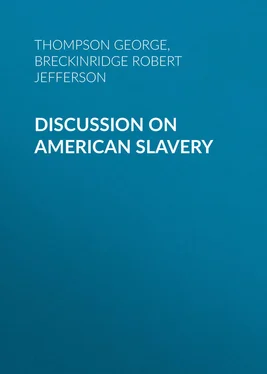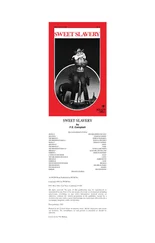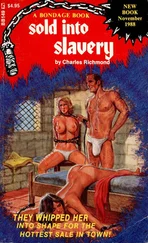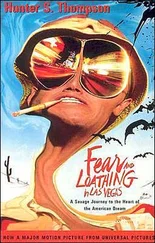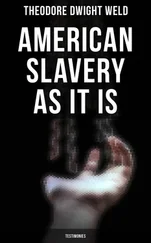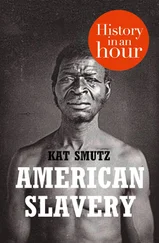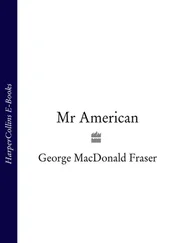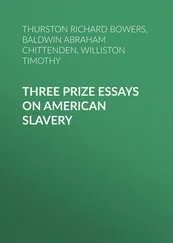George Thompson - Discussion on American Slavery
Здесь есть возможность читать онлайн «George Thompson - Discussion on American Slavery» — ознакомительный отрывок электронной книги совершенно бесплатно, а после прочтения отрывка купить полную версию. В некоторых случаях можно слушать аудио, скачать через торрент в формате fb2 и присутствует краткое содержание. ISBN: , Жанр: foreign_antique, foreign_prose, на английском языке. Описание произведения, (предисловие) а так же отзывы посетителей доступны на портале библиотеки ЛибКат.
- Название:Discussion on American Slavery
- Автор:
- Жанр:
- Год:неизвестен
- ISBN:http://www.gutenberg.org/ebooks/32500
- Рейтинг книги:4 / 5. Голосов: 1
-
Избранное:Добавить в избранное
- Отзывы:
-
Ваша оценка:
- 80
- 1
- 2
- 3
- 4
- 5
Discussion on American Slavery: краткое содержание, описание и аннотация
Предлагаем к чтению аннотацию, описание, краткое содержание или предисловие (зависит от того, что написал сам автор книги «Discussion on American Slavery»). Если вы не нашли необходимую информацию о книге — напишите в комментариях, мы постараемся отыскать её.
Discussion on American Slavery — читать онлайн ознакомительный отрывок
Ниже представлен текст книги, разбитый по страницам. Система сохранения места последней прочитанной страницы, позволяет с удобством читать онлайн бесплатно книгу «Discussion on American Slavery», без необходимости каждый раз заново искать на чём Вы остановились. Поставьте закладку, и сможете в любой момент перейти на страницу, на которой закончили чтение.
Интервал:
Закладка:
Discussion on American Slavery
INTRODUCTION
The following were the preliminary steps connected with the Discussion reported in the succeeding pages: —
Mr. Breckinridge's Letter, expressing his willingness to meet Mr. Thompson at Glasgow, was occasioned by the following passage in Mr. Thompson's Letter, which appeared in the London Patriot , in reply to the extracts inserted in that Journal, from the work published by the Rev. Drs. Cox and Hoby, entitled, "The Baptists in America": —
"In the mean time, I am ready to meet Dr. Cox in Exeter Hall, in his own chapel, or in any other building, to justify my charges against America and American Ministers; my general policy in the Anti-Slavery cause, and any particular act of which Dr. Cox complains. I am ready, also, and anxious to meet any American Clergyman, or other gentleman, in any part of Great Britain, to discuss the general question, or the propriety of that interference, of which so much has been said by persons who are otherwise engaged, and most praiseworthily so, in interfering with the institutions, social, political, and religious, of every other quarter of the Globe."
SIR,
A friend in this city, with whom I have stopped for a day or two, on my way to Scotland, has put into my hands your paper of the 23d inst., which contains Mr. George Thompson's letter of the 13th, attacking Dr. Cox.
As to the difficulties which exist between those two gentlemen, I, of course, have no right to speak.
Mr. Thompson, however, has not contented himself with urging a particular controversy with Dr. Cox; – nor even a general controversy, free for all who desire to engage him, or call in question his 'charges against America, and American Ministers' – as slave-holding Ministers and Christians on the other side of the water. 'But,' says he, 'I am ready, also, and anxious to meet any American clergyman, or other gentleman, in any part of Great Britain, to discuss the general question, &c.:' that is, the general question of his 'charges against America and American ministers, touching the whole subject of African slavery in that country.'
After mature and prayerful consideration, and full consultation with a few friends, I am not able to see how I can avoid taking notice of this direct, and almost personal challenge; which, I have some reason to suspect, was probably intended for me.
And yet I feel myself encompassed by many difficulties. For some may consider me defending the institution of slavery; whereas I myself believe it to be contrary to the spirit of the gospel, and the natural rights of men. Others might naturally look for more full proofs, and more exact information than I can give, when relying almost entirely upon mere memory. While by far the greater part, I much fear, are as impatient of all investigation on the subject, as, I am sorry to say, they seem to me, totally unacquainted with its real condition in America.
I have concluded, however, to accept the somewhat boastful challenge of Mr. Thompson. And I trust the following suggestions and conditions will be considered most reasonable, when the peculiar circumstances of the case are considered: —
1. I will meet Mr. Thompson at Glasgow, any time during the three first weeks of June; and spend three or four hours a day, for as many days consecutively as may be necessary – in discussing the 'general question,' as involved in his 'charges against America, and American Ministers,' in reference to the whole subject of slavery there.
2. But as my whole object is to get before the British churches certain views and suggestions on this subject, which I firmly believe are indispensable, to prevent the total alienation of British and American christians from each other; I shall not consider it necessary to commence the discussion at all, unless such arrangements are previously made, as will secure the publication, in a cheap and permanent form, of all that is said and done on the occasion.
3. I must insist on a patient and fair hearing, by responsible persons. Therefore I will agree that the audience shall consist of a select number of gentlemen, say from fifty to five hundred; to be admitted by ticket only, – and a committee previously agreed on to distribute the tickets – only to respectable persons.
I take it for granted that Mr. Thompson would himself prefer Glasgow to any other city, for the scene of this meeting: as it is the home of his most active supporters. And while the selection of the particular time of it cannot be important to him, my own previous arrangements are such, as to leave me no wider range than that proposed to his choice above.
More minute arrangements are left to the future; and they can, no doubt, be easily made.
I must ask the favour of an early insertion of this note, in the Patriot ; and beg to say, through you, to the Editor of the Glasgow Chronicle , that I shall feel obliged by its republication in his paper.
R. J. BRECKINRIDGE, A Delegate from the General Assembly of the Presbyterian Church of the U. S. America, to the Congregational Union of England and Wales.Durham, May 28,1836.
SIR,
I forward you, without a moment's delay, a copy of this evening's Patriot , containing a letter from the Rev. Robert J. Breckinridge, of Baltimore, United States. The following is my reply, which you will oblige me by immediately inserting, in company with the communication to which it refers.
I feel thankful that my overture has been accepted; and, notwithstanding the arrangements I had made to remain in London during the whole of the present month, and the announcement of my name in the public advertisements to lecture during the forthcoming week, I shall, D. V. be in Glasgow on Tuesday next; and shall be ready to meet Mr. Breckinridge, in the Religious Institution House, South Frederick Street, at noon of that day, to settle the preliminaries of the discussion, which, I trust, will commence the following morning.
It is my earnest hope, that every thing said and done, will be in accordance with gentlemanly feeling and christian courtesy.
Your's respectfully, GEORGE THOMPSON.The Speeches and Documents in this Pamphlet having been submitted to the correction of the Speakers, the Report may be relied on as an accurate and full account of the important proceedings.
DISCUSSION
FIRST NIGHT – MONDAY JUNE 13
Agreeably to public advertisement, the discussion betwixt Mr. George Thompson and the Rev. R. J. Breckinridge, was opened Monday evening, June 13. By half-past six, the hour fixed on by the Committee, Dr. Wardlaw's Chapel contained 1,200 individuals, the number agreed upon by both parties. A great number could not gain admittance, in consequence of the tickets allotted, being bought up on Saturday. On the entrance of the two antagonists, accompanied by the Committee, the audience warmly cheered them. By appointment of the Committee —
Rev. Dr. WARDLAW took the Chair. Having thanked the Committee for the honor they had conferred on him, and which, he trusted, would meet with the concurrence of the meeting, he said he had accepted the honorable post with the utmost confidence in the forbearance and propriety of conduct of the two gentlemen – or antagonists, should he call them? who were to address the meeting; and also, with the most perfect confidence in the good conduct and sense of propriety possessed by the meeting. Had he not possessed such confidence, he would never have thought of undertaking the present task.
Читать дальшеИнтервал:
Закладка:
Похожие книги на «Discussion on American Slavery»
Представляем Вашему вниманию похожие книги на «Discussion on American Slavery» списком для выбора. Мы отобрали схожую по названию и смыслу литературу в надежде предоставить читателям больше вариантов отыскать новые, интересные, ещё непрочитанные произведения.
Обсуждение, отзывы о книге «Discussion on American Slavery» и просто собственные мнения читателей. Оставьте ваши комментарии, напишите, что Вы думаете о произведении, его смысле или главных героях. Укажите что конкретно понравилось, а что нет, и почему Вы так считаете.
